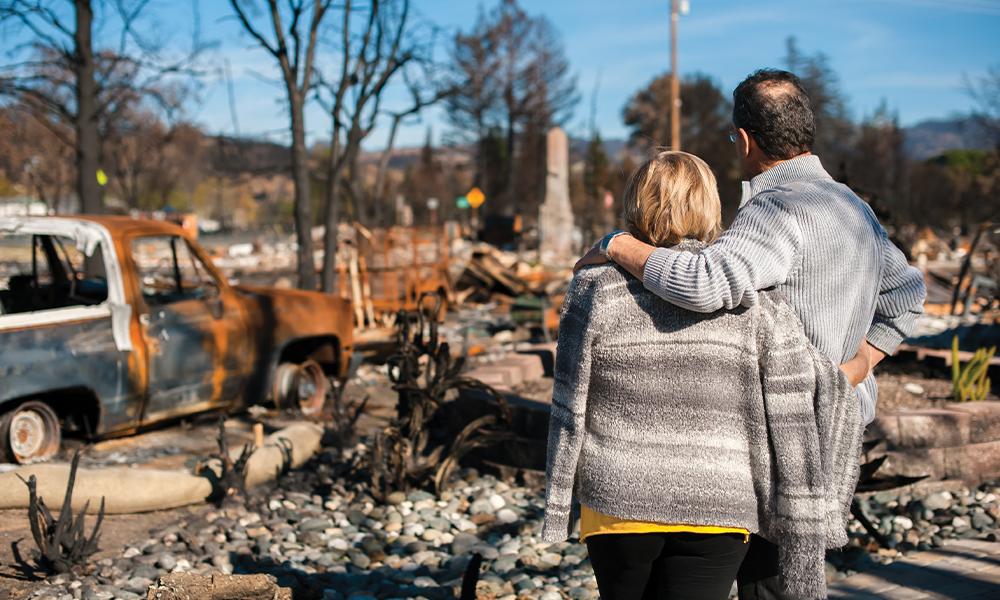
Having What Others Need, and Accepting What Others Give
“I just want to go home. I want to go take a nap on our couch. That’s all.” My son had just been sick in a cafe restroom in Alabama, two hours from our home in Panama City. Like any kid who didn’t feel well, he wanted to snuggle on the couch and drink Sprite. Like any parent with a child who is sick, all I wanted to do was take him home to rest.
“I just want to go home. I want to go take a nap on our couch. That’s all.” My son had just been sick in a cafe restroom in Alabama, two hours from our home in Panama City. Like any kid who didn’t feel well, he wanted to snuggle on the couch and drink Sprite. Like any parent with a child who is sick, all I wanted to do was take him home to rest.
Only the day before, Hurricane Michael had ripped through our town and took half our roof with it. Our couch was covered with storm sludge, insulation and debris. My husband and I were helpless to give him the simple thing he was asking for.
As the initial shock of our predicament wore off and the roads were cleared, we were able to get to a relative’s home. It wasn’t his own bed, but he was able to rest and drink Sprite. Thanks to insurance and quick roofers we were back in our home in less than three months — record speed compared to what others experience in similar circumstances.
Yet, I’ll never forget the feeling of my son asking me for something so simple and being unable to provide it. In all the chaos of the days and weeks that followed that moment was the first of many when myself and others in our community had challenges with basic needs. Stores were destroyed so money and a credit card didn’t matter — there was nowhere to shop. Parents ran out of diapers. When a parishioner couldn’t shake congestion and had nowhere to purchase cold medicine, we found some in the church’s first aid kit and shared. I was completely humbled when I asked my friend for a pair of her socks because mine were buried under debris and rainwater.
Prior to this experience, “charity” was something I shared, not received. We tithed regularly, volunteered and contributed what we could to special collections in our church and community. We even bought popcorn from Boy Scouts. However, it wasn’t until I experienced the basic needs of myself and others being met by the kindness of friends and strangers that I understood what it feels like to receive when you can give nothing in return.
Our experience was a profound illustration of what it looks like when people see charity as more than a line item on their budget — which is also very important! — and ask themselves what they have and who they have the ability to help.
At any moment, there are individuals and families who are facing circumstances that have made meeting their basic needs impossible while there are those who have enough for themselves and the ability to significantly alleviate the sufferings of others.
When everything is going well, we can get lost in our routines and unintentionally tune out the needs of our brothers and sisters. Christ commands us in the Gospel of Matthew that, “whatever you did for one of these least brothers of mine, you did for me” (25:40). Amid discussions about broken systems and policies, we can forget this simple command — to care for others is to care for Christ.
Dry socks. Diapers. Cold medicine. What do you have that others need? When we honestly examine what God has given us we may be surprised at the tremendous difference we can make for those struggling, for whatever reason, to meet their basic needs.
Alison Blanchet lives in Panama City with her husband and three children. She works as a therapist for children and teens. Email her at alisondblanchet@gmail.com.



